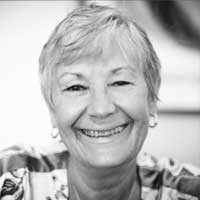Please note that to complete this course, you will need to read the textbook AAC in the Schools: Best Practices for Intervention by Gloria Soto, PhD and Nancy B. Robinson, PhD, CCC-SLP. If you don’t already own a copy of the textbook, you can purchase it at Attainment Company.
FAQ: SpeechPathology.com Textbook Continuing Education (CE) Courses
What is a textbook CE course?
Our textbook CE courses constitute the CE activity for their respective textbooks. Essentially, these courses provide a way to earn CEUs for the time and effort our members invest in reading these valuable texts.
Do I need materials for these courses?
Yes! You will need the relevant textbook for any textbook-based courses you wish to take.
Does SpeechPathology.com charge extra fees for textbook-based courses?
No. You are responsible for purchasing your textbook, and (as with our other courses) you will need a current SpeechPathology.com membership. SpeechPathology.com does not collect any additional fees for these courses.
Where is the course content? How do I take this course?
First, read the book on your own; the book IS the content for this text course. Next, register for the course if you haven't already done so. The course will remain in your pending courses for 30 days. If you need more time to read the textbook, you can register for the course again when you’re ready.
Once you’ve done that, click the Continue to Exam button and complete the course per the usual process. The exam itself is the CE activity you need to complete to earn CEUs for this textbook.
Questions?
Reach out to editor@speechpathology.com if you have questions or need assistance.


